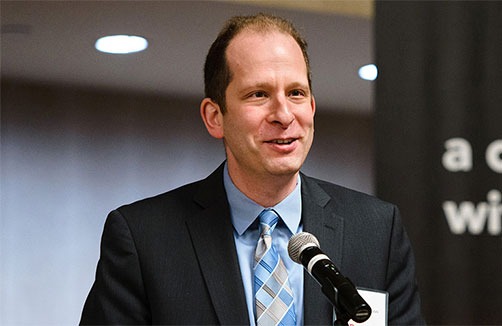
Proposed NJ liquor license law aims to revitalize downtown areas
The Assembly Regulatory Oversight and Reform and Federal Relations Committee could vote in the coming weeks on a proposed measure to create new liquor licenses for restaurants.
To better understand the issue, the panel has reached out to several experts for testimony, including Rutgers University finance professor Morris Davis, who is also the director of the Center for Real Estate at Rutgers.
He pointed out there are certain areas in New Jersey where are liquor licenses are plentiful, and the cost of those licenses is relatively inexpensive, but in other areas licenses are extremely scarce.
“The cost of a liquor license in those areas could be $500,000 or more, so the problem is there’s no mechanism to enable budding restaurant owners to acquire a license at a reasonable price in areas where there’s clearly a demand for restaurants,” he said.
Legislation sponsored by Assemblyman John Burzichelli, D-Gloucester, calls for the establishment of two new types of licenses, an R1 license, that would permit a restaurant to serve mixed drinks, beer and wine at a dining table, and an R2 license, for smaller restaurants, that would only allow beer or wine to be served at a table.
The professor noted this would allow communities where the demand for “new restaurant meals and alcohol to be served with meals is high, it just allows new supply to come into the market, which I think New Jersey needs.”
He explained New Jersey is going through a sort of renaissance in its downtown areas and one of the ingredients that we need “for that renaissance to be sustainable are clusters of innovative restaurants offering high quality food, that’s what people look for when they move downtown. And for restaurants to be profitable, in most cases they have to serve wine or beer or spirits.”
He noted the bill under consideration would facilitate the creation of downtown restaurant corridors, which will enable the further revitalization of our downtown areas.
“People in New Jersey are increasingly interested in moving to downtown areas so they can enjoy consumption amenities. One of the consumption amenities people talk about are restaurants, many restaurants need liquor sales to be profitable,” he said.
“If we’re serious about promoting and encouraging high-density downtown living, with a focus on public transportation, then we have to be serious about having profitable, entrepreneurial small restaurants with the ability to serve wine and beer.”
He argues that existing liquor license holders won’t be hurt by this plan.
“The new law calls for owners that can demonstrate harm to the value of their license, they’re going to get reduced taxes, equal to the loss in the value to their license,” he said.
He explained the proposed law will generate revenue for municipalities down the road. It will give new restaurants a better chance to succeed and compensate existing liquor license owners with tax credits so everybody would benefit.
“Maybe the people opposed to it are just worried about competition from new and better restaurants,” he said.
See Real Article: Proposed NJ liquor license law aims to revitalize downtown areas